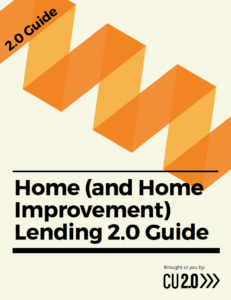Welcome to episode 51 of the CU 2.0 Podcast.
Can a credit union serve more than one employer group? You know what today’s answer is of course. But to know the history you need to talk with Marc Schafer, CEO of Truliant, a Winston Salem credit union.
That’s because Truliant was sued by a banker’s group in the mid 1990s that claimed it was illegal for a credit union to serve more than one employer group. And the bankers won in the Supreme Court!
So how is it now legal? Listen to Schaefer and his tale of how HR 1151 became law – that’s the legislation that made multiple SEGs legal.
Along the way you will hear a great personal credit union success story. Schafer became CEO of the tiny FDIC credit union when he was 34 in 1986. In 1995 he moved to Truliant which then was a $400 million credit union.
Truliant now is a $2.5 billion credit union.

That’s a remarkable growth story and of course you want to hear it.
Why is Schafer telling his story now? He retires at year end.
His is a terrific story of how to make credit unions work better, for more people.
Related podcasts in this series include Bucky Sebastian (who tells his take on HR 1151), Gary Oakland, Jim Blaine, and Teresa Freeborn.
As for Blaine, the retired CEO of SECU in North Carolina, he too has a story of being sued over multiple SEGs. In an email he wrote this: “few know that the “original” FOM law suit was filed against SECU in state court (SECU is state-chartered) in 1977 by the NC Bankers Association when SECU added small city/county local govts to our FOM. The bankers beat us in the NC Supreme Court (on a split decision with the Chief Justice writing an ‘icy’ dissent!) and we had to divest about 9,000 local govt employees who had joined. We did so – being the ornery, stubborn folks we were! – by forming a federal credit union (today’s Local Government FCU @$2.5 billion) which immediately contracted for all services through SECU. LGFCU had a board and staff of 1, but immediately had a full array of services and about 50 branches at that time! Needless to say our state bankers were ‘not pleased’ and sued in federal court (we forced it out of our state courts since LGFCU was federally chartered!). LGFCU/SECU won on appeal in the 3rd District (Richmond) and the bankers decided not to appeal to the US Supreme Court. When they later came gunning for Marc, the bankers made sure it got heard in the 4th District (DC) which is far more ‘business friendly’ – the 4th ruled in favor of the banks, which led to the adverse Supreme Court decision, the Campaign for Consumer Choice, and HR 1151.”




